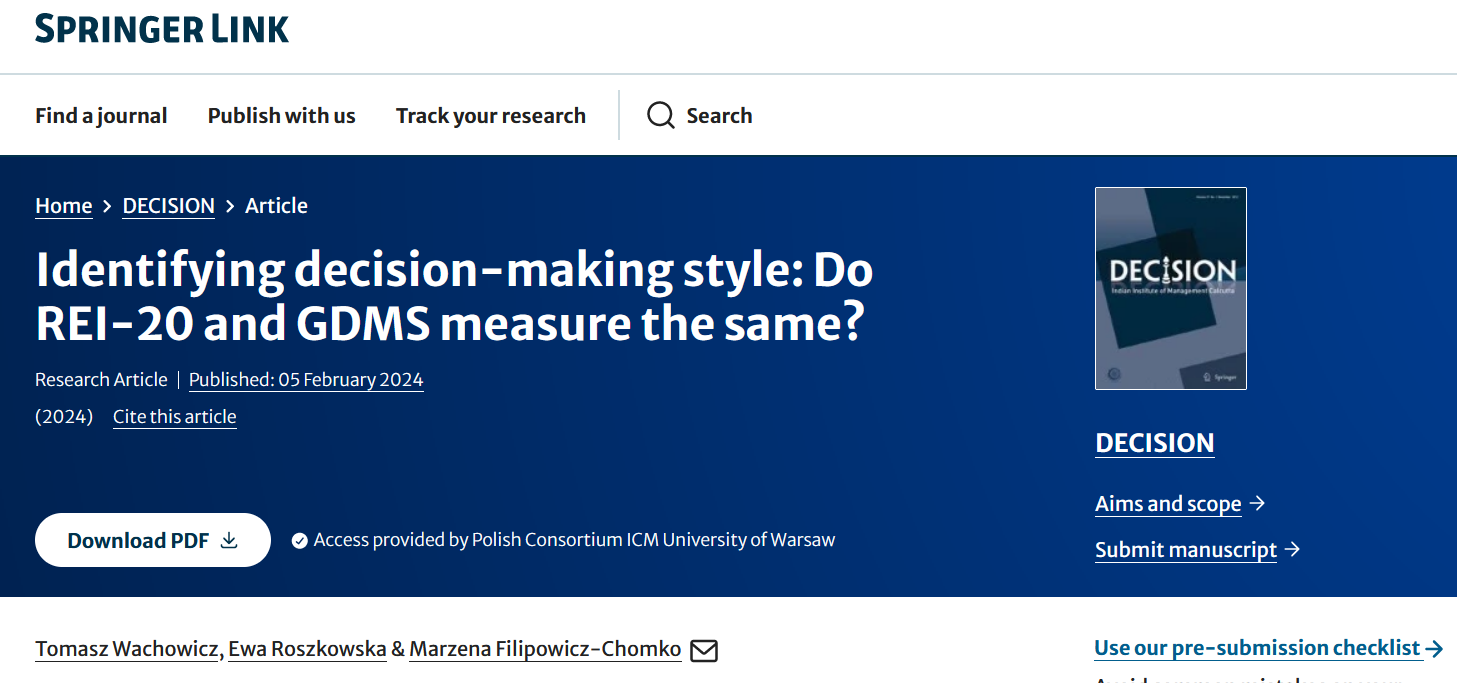 The latest article by the N.EA. team reporting the results of an experimental study comparing two decision-making style recognition tools, the REI (Rational-Experiential Inventory) and GDMS (General Decision Making Style), has been published on the website of the "Decision" journal published by Springer. The presented results indicate that despite similarities in the categorization of decision-making styles, both tools identify different intensities of analytical thinking and intuitiveness for the same decision-maker, which may lead to differences (and even conflicts) in the conclusions drawn when attempting to build models relating various phenomena to decision-making style.
The latest article by the N.EA. team reporting the results of an experimental study comparing two decision-making style recognition tools, the REI (Rational-Experiential Inventory) and GDMS (General Decision Making Style), has been published on the website of the "Decision" journal published by Springer. The presented results indicate that despite similarities in the categorization of decision-making styles, both tools identify different intensities of analytical thinking and intuitiveness for the same decision-maker, which may lead to differences (and even conflicts) in the conclusions drawn when attempting to build models relating various phenomena to decision-making style.
The paper can be accessed under the following link: https://doi.org/10.1007/s40622-024-00373-4.
The paper aims to study relationships between results obtained by two instruments, the rational-experiential inventory, in its modified version named REI-20, and the general decision-making style (GDMS). Although both instruments differ in concept and construction of decision styles, they refer to two very similar constructs—rationality and experientiality or intuition, resulting from the dual concept of cognitive-experiential self-theory. Using the same experimental sample, we examined the relationships between the REI-20 modes, i.e., rational and experiential, and GDMS modes, i.e., rational, intuitive, dependent, avoidant, and spontaneous. We checked how rational and experiential decision-making styles identified by REI-20 correspond to the rational and intuitive modes of GDMS. We also examined the relationships between clusters of decision-making profiles, defined as combinations of various levels of rational and intuitive/experiential modes determined from both instruments. Finally, we analyzed the gender differences between the styles identified by both inventories. The between-tool analysis showed that rationality determined from REI-20 and GDMS correlate only weakly; however, the correlation between experientiality and intuitiveness is strong. Both tools produced inconclusive results when comparing gender differences. REI-20 differentiated significantly between genders, indicating that women are less rational and more experimental than men, while GDMS considered these differences insignificant. It
implies that using a particular decision-making style inventory in advanced analyses of the process and outcomes of the decision-making requires exceptional caution as various tools may produce a different classification of decision-makers and lead to different, if not contradictory, conclusions.
Keywords: Decision-making style · Decision profile · Gender · Rational-experiential inventory ·General decision-making style



